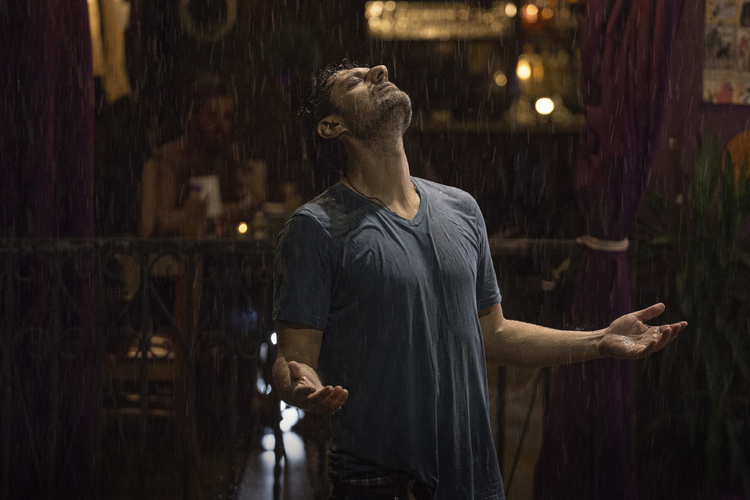Omnipresent Is a Timely Commentary on the Temptations of Technology
Written by Ian Thomas Malone, Posted in Movie Reviews, Pop Culture
For all the ways in which technology has improved the world, such as making thousands of miles seem much smaller through the lens of a Skype call, the idea of abuse of this incredible power never ventures far from the broader discussion. Surveillance is an especially hot-button topic, as the ease with which one can record an entire room can create the ever-looming sense that one is being watched. Omnipresent (originally titled Vezdesushtiyat) is a Bulgarian film about what happens when a man decides to make that fear a reality.
Emil lives a comfortable life. He has a nice family, a beautiful home, and a great job running an advertising agency to supplement his respected but stagnant career as a novelist. His situation would be the envy of many creative types, except something isn’t quite right with Emil’s paradise. He wants something more.
A ploy to catch a thief plundering his bedridden father’s antique treasures leads Emil to discover his passion for surveillance. He sets up cameras in his office, his home, his wife’s office, even his bathroom. He sits and watches for hours, sometimes using the footage to his advantage, but sometimes just out of a sick sense of pleasure. His motives are never really made all that apparent to the viewer because Emil himself doesn’t really seem to know why he enjoys invading other people’s privacy.
Omnipresent juggles a delicate balance between its plot and its protagonist, knowing that the further Emil dives into his spying, the more alienated he’ll become from the viewer. Emil isn’t particularly likable, Velislav Pavlov delivers a captivating performance that circumvents any need to identify with his character’s abhorrent behavior. The film allows Emil to be a flawed man without offering excuses, providing important commentary on the dangers of surveillance. People can venture down dark roads without even stopping to consider the risks at hand. There doesn’t always have to be an easy answer for why people do bad things.
The film juggles an impressive number of subplots for a two-hour movie. Teodora Duhovnikova stands out as Emil’s unhappy wife Anna, whose performance stretches across the ground the film would otherwise be too constrained to cover, wearing years of turmoil in every expression. Mihail Mutafov also delivers a compelling performance as Emil’s father Kirill, a man resilient against the many hardships aging brought to his doorstep. The strong acting drives home the stakes at hand, showcasing the many people on the receiving end of Emil’s selfish treachery.
Director Ilian Djevelekov did a superb job in managing the various threads of his work, fully fleshing out his storylines while never losing sight of the major force driving the narrative. XANNONCE Omnipresent could have gotten by playing to the viewer’s own fears of being watched, but the intimacy it gives to its characters makes the narrative all the more powerful when it stops to consider the ramifications of Emil’s behavior.
Technology is a powerful tool that’s all too easy to abuse. Omnipresent conveys the wreckage that can be created in the wake of a decision made without considering the God-like power at one’s fingertips. Bulgaria’s selection for Best Foreign Language Film at the upcoming Oscars tells a tale that transcends language, a powerful story for today’s environment.











